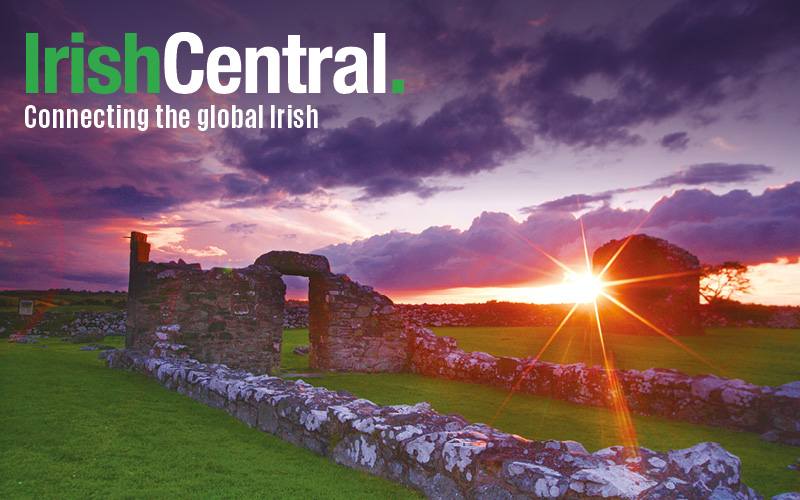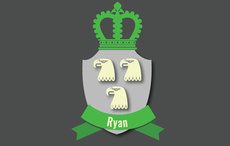As I sit down in Radio City Music Hall, I think I know exactly what I’m getting myself into. I’m here on a Friday night to see Celtic Thunder, yet another Irish musical export that has exploded in popularity across the United States. Since their formation in 2006 by creator-producer Sharon Browne and composer Phil Coulter, Celtic Thunder has released four extremely successful albums and appeared on numerous PBS specials. Like their female counterparts Celtic Woman, they seem to have particularly captivated the Irish-American audience, with their careful balance of Irish traditional songs and updated classics.
So I was legitimately surprised when I sat down in the theater next to a couple gushing about Celtic Thunder in Italian. When I spoke with Thunder member Keith Harkin, I asked him if he thought the Irish-American connection had been particularly integral to the band’s popularity. While he can’t deny the sheer numbers – Celtic Thunder’s latest release, Celtic Thunder Christmas, is at #1 on the Billboard charts – Keith explained that Celtic Thunder appeals to everybody, regardless of Irish blood. “Irish music is a real old music, everyone knows Irish music…no matter where you’re from there’s always an Irish bar, there’s always an Irish connection. So it’s not just about the American connection, because Irish is everywhere.”
In the age of music mass marketing, it wasn’t until after the concert that I really believed Celtic Thunder had the global appeal Keith described. While they have only toured in the U.S and Canada, Celtic Thunder’s DVD of their first show, Act One, recently went gold in Australia. Once they get done with a whopping 78 dates [this is as of early October] left on their current tour, they’ll hopefully expand touring to Australia and Asia. And it’s all because, as Keith says, Celtic Thunder is “not a one-trick pony.”
“There’s a wide variety of people who come to the show, not just people with Irish connection,” said Keith. “The music spans from the 20s to the modern selections. You’ve got Paul [Byrom] doing the Fred Astaire numbers, Damian [McGinty] doing the sort of swing, Rat Pack numbers, myself doing the 60s Beach Boys numbers, Ryan [Kelly] doing modern classics and George [Donaldson] doing 80s and 90s music, so everybody’s going to take something from it.”
The current tour features two halves to each concert, which are nearly distinct enough to be separate shows. The first, “Tradition,” is a collection of traditional Irish songs. Beautifully sung and well-arranged, “Tradition” acts as an introduction to each of the members’ singing styles and voices through the medium of the music with which they are most familiar. “The first half is the music that us Irish guys all grew up listening to,” said Keith. “My dad’s a musician and I grew up hearing him play a lot of those songs the same way the other boys’ parents would’ve done…In the first shows a lot of people really loved the Irish stuff so we decided to do one half completely Irish traditional.”
The second half is an impressive showcase of songs that range from operatic to classic rock and roll to modern pop hits, such as Coldplay’s “Viva La Vida.” Each of the men’s strengths as a singer is again brought out through the song selections. Keith explains that while they do not have final say on what they get to sing, there is discussion with the producers about what is the most fitting style for each of the members.
And then there are the group numbers – though few and far between during the second half of the concert, they remind the audience of the strong dynamic and stage presence of the combined group over any one individual. “Ireland’s Call,” a song composed by Phil Coulter and the official Irish Rugby Union anthem, marked the finale of the Radio City Music Hall show. Clearly a fan favorite, the rousing anthem brings the entire crowd to its feet, and by the second chorus the audience has picked up enough of the words to enthusiastically sing along.
Producer Sharon Browne styled Celtic Thunder after Celtic Woman, the all-female singing group created in 2004 to unbelievable success in the United States and around the world. For Celtic Thunder, auditions were held in Scotland and Ireland to find the best singers and performers to fit Browne and Coulter’s vision of the group. For Keith Harkin, the chance to sing in the Celtic supergroup was almost accidental. “I was working with Andy Wright at the time writing music for him and doing music for other people and myself, and I came that day from London, the day they were holding auditions for Celtic Thunder, and I had no idea what Celtic Thunder was or who Sharon Browne was…I went to have a beer with my dad and he paid for my cab ride to the bar and I had no idea why he had paid, walked into the audition still with no idea what I was doing there, and sung a few songs and they liked me. And here I am sitting here today in Springfield [Illinois, on tour].”
Besides Damian and Keith, both natives of Derry, who had performed at some local charitable events in their hometown and had met briefly, the men were all strangers when they were chosen for Celtic Thunder. However, they all shared the thread of a deep devotion to musicianship, even from a very young age. Damian McGinty has been involved with Celtic Thunder since he was fourteen. He won his first singing competition at the age of six. George Donaldson is a well-known Glaswegian flautist, guitarist and singer, and Paul Byrom, from Dublin, is also a long-time professional musician, releasing his solo album “Velvet” in 2005. Ryan Kelly has been actively involved in theater and performed on BBC concert specials before the formation of Celtic Thunder.
Keith told me he had been singing and playing music since he was four, a talent that became a professional pursuit as he blossomed into a solo musician and translated music for the BBC on the Irish language show Two Tongues (Dhá Theanga), in which he was also the lead actor. Keith’s solo career has continued – he created his own music label called Busty Music Ltd in 2009, to which he has already signed his sister. His song “Lauren and I,” a catchy, acoustic pop rock single, is also part of Celtic Thunder’s performances.
The members’ ages span from 18 to 42, a disparity that saves them from being considered an “Irish boy band” and instead, on stage, makes them look like a family. Keith described them as “brothers,” especially since they often spend most of their year together, touring, promoting and filming new concerts and specials.
“The five of us guys get on pretty well and we’ve been together for three years. This is our fourth tour of America and Canada. So we’ve been living with each other like brothers for the past three or four years.”
The group is backed by the Celtic Thunder Band, which is front and center throughout the show and equally integral to the quality of Celtic Thunder’s performance. Keith concurs that they are “as much a part of the band as anyone else on stage.” In fact, most of the members can play any and all of the instruments used in the show’s arrangements, switching between fiddles and harps while making agile leaps across the stage in time with the singers. Recently, Neil Byrne, the guitarist in the band, has been invited to perform some songs along with Celtic Thunder as well as provide backing vocals in various recordings.
With three years of success and accolades under their belts, Celtic Thunder is not stopping anytime soon. Fans can look forward to special performances of Celtic Thunder’s holiday album at the end of the year as well as a PBS Christmas special in December. Though Celtic Thunder can easily draw the globe into Radio City Music Hall, the men still have much of the world left to conquer.




Comments